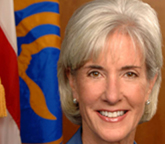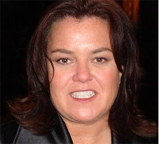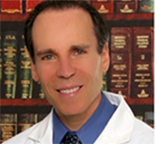Advancing Women's Heart Health
As another Heart Month comes to a close, the Women's Heart Foundation is looking to celebrate its 20 year anniversary of raising awareness of women's heart health issues. Incorporated June 11, 1992, the WHF served as the front-runner of this global movement. We are grateful to our many friends and sponsors who have contributed selflessly to the cause of women's hearts. It was November 1988 that I began meeting with officials in Washington, informing them of inequities in women's heart care and early preventable deaths. I conferred with NHLBI leaders Drs. Weinstein, Passamante and Taubenheim, each who confirmed women's heart issues were not being given adequate attention. Very little money was being dedicated to research on women, and there was no focus on why women were dying from heart disease at such an alarming rate.
I paid a visit to NOW national headquarters in Washington. Consequent to my meeting, the NOW turned to the media with public outcry and shortly thereafter, the NIH established the Office of Research on Women's Health.
Our immediate charge in 1992 was education, advocacy and gender specific healthcare. We formed an education committee of physicians, nurses and cardiac rehabilitation specialists to design new heart materials that graphically featured women as cardiac patients. NIH Director Dr. Claude Lenfant kindly served as one or our reviewers. Dr. Lenfant later helped forge the Women's Heart Health Campaign (2001), which evolved into the widely recognized The Heart Truth campaign.
In 1992, the WHF reached out nationally to tell its story, using Women's Heart Week as a platform. Governors in 27 states recognized the week with
proclamation signing festivities, and hospitals enthusiastically reached out to women with community education programs and blood pressure screenings. In 2003, the United States Congress passed a resolution designating February 1-7 as National Women's Heart Week.
The message continues to expand with the red dress icon that was introduced in 2003 by the Heart Truth, and now, the CDC Million Hearts
campaign with the ambitious goal to reduce the number of deaths from heart disease and stroke by one million over a 5-year period.
In upcoming issues, we hope to enlighten you with new knowledge of how
heart disease affects women differently, introduce new lifesaving technologies, new diets to reverse heart disease, and address some imminent changes about to take place
in healthcare with the Affordable Care Act and how this may affect your care.
Take care of your heart.
Bonnie Arkus, RN,
Executive Director and Founder
 Kathleen Sebelius, HHS Secretary, introduces the Million Hearts Campaign. View video The Campaign is based on prevention and remembering "Your ABC's":
Kathleen Sebelius, HHS Secretary, introduces the Million Hearts Campaign. View video The Campaign is based on prevention and remembering "Your ABC's":
A — Appropriate Aspirin Therapy
B — Blood Pressure Control
C — Cholesterol Management
S — Smoking Cessation.
Cardiologist Dr. Janet Wright is the director of this exciting project. view more Million Hearts videos
 Rosie O'Donnell Heart Attack - symptoms you need to know. Last April, Rosie O'Donnell survived a heart attack.
She suffered typical symptoms of heart attack, even with the mild flu-like symptoms 2 - 3 weeks prior. The precipitating event was when she tried to help an obese disabled woman from her car in the parking lot.
Rosie's symptoms of severe nausea with wretching, extreme arm weakness and chest discomfort led her to believe she was having a heart attack. Good she took a baby aspirin right away to save
her heart muscle from damage, but bad she didn't call 9-1-1. The next day, Rosie went to the hospital, where she was given emergency care and an angioplasty that saved her life.
read webmd article and view Rosie on Dr. Oz show - Youtube
Rosie O'Donnell Heart Attack - symptoms you need to know. Last April, Rosie O'Donnell survived a heart attack.
She suffered typical symptoms of heart attack, even with the mild flu-like symptoms 2 - 3 weeks prior. The precipitating event was when she tried to help an obese disabled woman from her car in the parking lot.
Rosie's symptoms of severe nausea with wretching, extreme arm weakness and chest discomfort led her to believe she was having a heart attack. Good she took a baby aspirin right away to save
her heart muscle from damage, but bad she didn't call 9-1-1. The next day, Rosie went to the hospital, where she was given emergency care and an angioplasty that saved her life.
read webmd article and view Rosie on Dr. Oz show - Youtube
 Joel Fuhrman, MD on becoming a "Nutratarian" and new rules for eating Hearth Healthy. From PBS fame and author of "Eat to Live", Dr. Fuhrman gives a quick and easy way to eat
healthy. Using the tongue-in-cheek acronym "G-Bombs", it represents types of foods we need to eat every day to stay healthy and prevent disease from entering the body.
Joel Fuhrman, MD on becoming a "Nutratarian" and new rules for eating Hearth Healthy. From PBS fame and author of "Eat to Live", Dr. Fuhrman gives a quick and easy way to eat
healthy. Using the tongue-in-cheek acronym "G-Bombs", it represents types of foods we need to eat every day to stay healthy and prevent disease from entering the body.
G — Greens
B — Berries
O — Onions
M — Mushrooms
B — Beans
S — Seeds and Nuts.
Visit Dr. Fuhrman's Youtube Channel where you will find an exciting lecture series, recipes and more.
April 1-7 is Medication Safety Week- A free program with health management tools will be provided (to be posted in a special e-newsleter issue this month ).
|
|
Imagine a world without heart attack or stroke. Please consider making a donation and help make this dream a reality.
Please share this lifesaving information with family, friends and co-workers.
Send it to every woman you know.
|
|
 Kathleen Sebelius, HHS Secretary, introduces the Million Hearts Campaign. View video The Campaign is based on prevention and remembering "Your ABC's":
Kathleen Sebelius, HHS Secretary, introduces the Million Hearts Campaign. View video The Campaign is based on prevention and remembering "Your ABC's":
 Rosie O'Donnell Heart Attack - symptoms you need to know. Last April, Rosie O'Donnell survived a heart attack.
She suffered typical symptoms of heart attack, even with the mild flu-like symptoms 2 - 3 weeks prior. The precipitating event was when she tried to help an obese disabled woman from her car in the parking lot.
Rosie's symptoms of severe nausea with wretching, extreme arm weakness and chest discomfort led her to believe she was having a heart attack. Good she took a baby aspirin right away to save
her heart muscle from damage, but bad she didn't call 9-1-1. The next day, Rosie went to the hospital, where she was given emergency care and an angioplasty that saved her life.
read webmd article and view Rosie on Dr. Oz show - Youtube
Rosie O'Donnell Heart Attack - symptoms you need to know. Last April, Rosie O'Donnell survived a heart attack.
She suffered typical symptoms of heart attack, even with the mild flu-like symptoms 2 - 3 weeks prior. The precipitating event was when she tried to help an obese disabled woman from her car in the parking lot.
Rosie's symptoms of severe nausea with wretching, extreme arm weakness and chest discomfort led her to believe she was having a heart attack. Good she took a baby aspirin right away to save
her heart muscle from damage, but bad she didn't call 9-1-1. The next day, Rosie went to the hospital, where she was given emergency care and an angioplasty that saved her life.
read webmd article and view Rosie on Dr. Oz show - Youtube
 Joel Fuhrman, MD on becoming a "Nutratarian" and new rules for eating Hearth Healthy. From PBS fame and author of "Eat to Live", Dr. Fuhrman gives a quick and easy way to eat
healthy. Using the tongue-in-cheek acronym "G-Bombs", it represents types of foods we need to eat every day to stay healthy and prevent disease from entering the body.
Joel Fuhrman, MD on becoming a "Nutratarian" and new rules for eating Hearth Healthy. From PBS fame and author of "Eat to Live", Dr. Fuhrman gives a quick and easy way to eat
healthy. Using the tongue-in-cheek acronym "G-Bombs", it represents types of foods we need to eat every day to stay healthy and prevent disease from entering the body.
